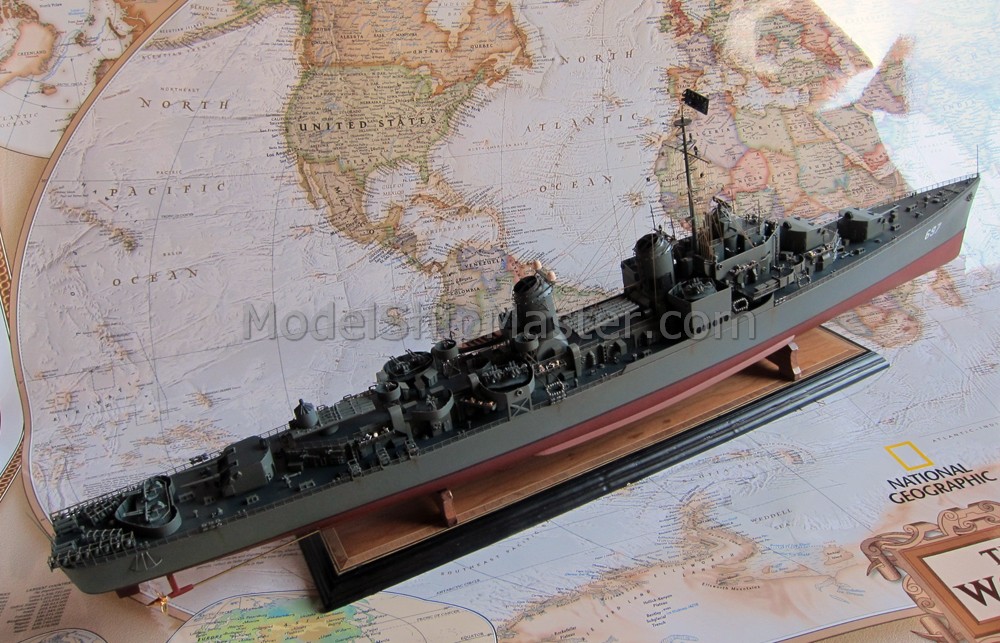|
Allen
M. Sumner class destroyer model

The Allen M. Sumner
class was a group of 58 destroyers built by the
United States during World War II. Another twelve
ships were completed as destroyer minelayers. Often
referred to as simply the Sumner, this class was
distinguished from the previous Fletcher class by
their twin 5-inch/38 caliber gun mounts, dual
rudders, additional anti-aircraft weapons, and many
other advancements. The Sumner class design was
extended 14 feet amidships to become the Gearing
class, which was produced in larger numbers but did
not see significant service in World War II.
.jpg)
The Sumner class
achieved a 20% increase in 5-inch gun armament and
almost a 50% increase in light AA armament on a hull
the same length as a Fletcher, only 15 inches wider,
and about 15 inches deeper in draft. The increase in
standard displacement was only 150 tons, about 7.5%.
Thus, the Allen M. Sumner class was a significant
improvement in combat power at a small increase in
cost.
%20copy.jpg)
We build this primarily
wood model of the
Sumner class destroyer the
following sizes: 22"
long (1/200 scale),
31"
long (1/144 scale), 44"
long (1/100 scale). Email us for prices.
Model is built per commission only. We require only
a small deposit to start the process. Please click here for
more details.
Click here to
learn about authentic
warship
models.
Learn more about the Allen
M. Sumner class destroyer here:
https://en.wikipedia.org/wiki/Allen_M._Sumner-class_destroyer
|